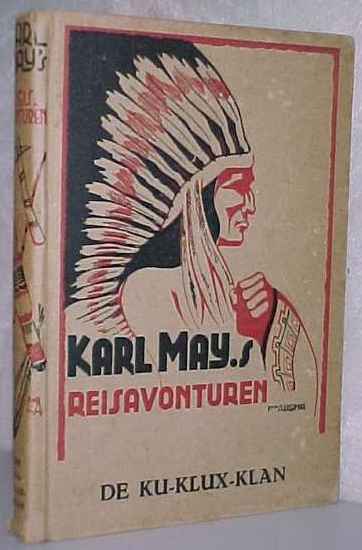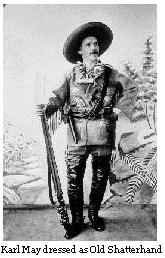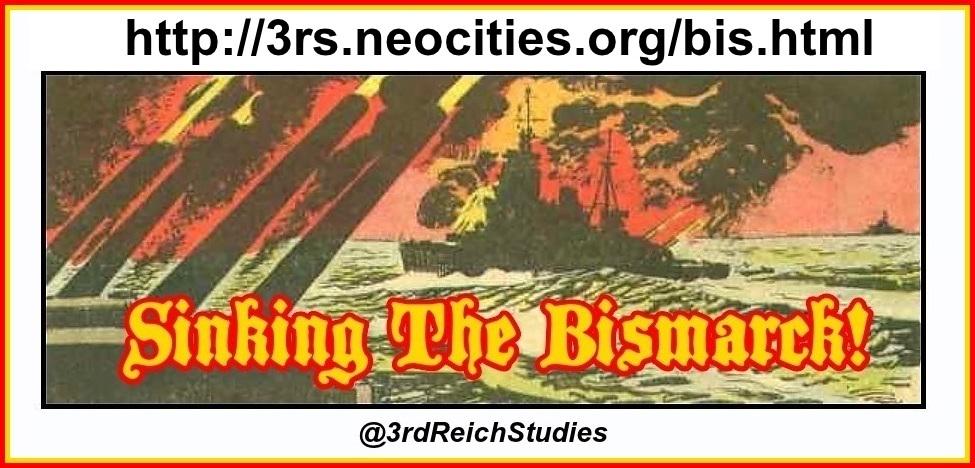
Hitler's life-long favorite author was children's author Karl May.
Professor Eduard Huemer, Hitler's French and German Teacher:
I well remember the gaunt, pale-faced boy who shuttled backwards and forwards between Linz and Leonding. Hitler was certainly gifted, although only for particular subjects. He lacked self-control and, to say the least, he was considered argumentative, autocratic, self-opinionated and bad-tempered, and unable to submit to school discipline. Nor was he industrious; otherwise he would have achieved much better results, gifted as he was. He reacted with ill-concealed hostility whenever a teacher reproved him or gave him some advice. At the same time, he demanded the unqualified subservience of his fellow-pupils, fancying himself in the role of a leader, and of course playing many small harmless pranks, which is not unusual among immature youngsters. He seemed to be infected with the stories of Karl May and the Redskins.

So important is Hitler's discovery of May that forty years later he will remember with clarity the day that fellow schoolmate Fritz Seidl, upon encountering young Hitler reading The Last of the Mohicans declares, "Fennimore Cooper is nothing, you must read Karl May."
Hitler would later remark: "I owe to Karl May my first ideas about geography, and the fact that he opened my eyes to the world."

An ex-convict and avowed pacifist from Saxony, May authored numerous popular adventure stories set in the American Wild West, while never personally setting foot outside the continent of Europe. May's books are all the rage in these times, and Hitler and his peers follow, with devotion, the gratuitous butchery perpetrated by the white American hero, Old Shatterhand, as he decimates the ranks of the evil Ogellallah Indians with clever brutality.
March 22, 1912: Hitler walks across town to the Sofie Halls in the Third District, to attend a lecture by his favorite author, Karl May. May is at this time steeped in controversy. A story had recently been published that he had spent time in prison as a young man, for fraud and theft. Hitler defends May to the other boarders at the hostel, saying that using his past against him is unfair, and that those who would do so are hyenas and scoundrels. Three thousand people attend the sold-out lecture, the title of which is "Up into the World of the Noble Man."
From local newspaper coverage of May’s lecture:
What was particularly interesting was the lecture evening’s audience. Petit bourgeois and suburban women and men, small white-collar workers, adolescents of both sexes, and even boys. Every one of them is bound to have a subscription to a public lending library, and to have read all sixty volumes of Karl Mays works: the fantastic travel stories and novels, whose authenticity has been doubted so often, and which have been the object of long, bitter legal suits . . . .
May is a seventy-year-old gentleman; a gaunt, old-fashioned figure, with a half-bureaucratic and half-pedagogical head, which is surrounded by short white curls. He alternately puts a pince-nez made of horn, or glasses in front of his cheerful eyes . . . .
May explains his Weltanschauung [worldview] in a rather unstructured and erratic manner. He says he has always striven upward, toward a freer, spiritual world of noblepeople. He alternately calls himself a soul, a drop of water, and--his favorite--a mental-spiritual aviator, and, now and then, reaches under the table for one of the numerous volumes of his collected works, to read more or less philosophical observations, fairy tales, parables, and poems. The strangest thing about what he says is his seriousness, his bathetic and genuine enthusiasm, which has something of a religious kind of enthusiasm about it.

March 30, 1912: Just one week after Hitler attends his last lecture, Karl May dies of "paralysis of the heart, acute bronchitis, asthma" and what is probably undiagnosed lung cancer. Hitler is reported to have been "deeply upset" by his death and was "genuinely very sorry about it."
From Hitler: 1889 - 1936 Hubris by Ian Kershaw:
Hitler [in late 1932] wanted to hear about America, where [early Hitler supporter Karl] Luedecke had spent the previous few years in a variety of insignificant jobs and small-time business ventures. He was glad to discover Luedecke's interest in the Karl May cowboy and Indian stories which he had devoured as a boy. He said he could still read them and get a thrill out of them.
On occasion during his war, Hitler, the perpetual adolescent, will sometimes refer to the Russians as Redskins, and even present some of his less-motivated generals with copies of certain May works to provide them inspiration. (One imagines Churchill giving a Hardy Boys volume to Chamberlain.) Albert Speer testified that "when faced by seemingly hopeless situations, he [Hitler] would still reach for these stories," because "they gave him courage like works of philosophy for others or the Bible for elderly people."For example, during the planning for the German offensive against France, Hitler was unsatisfied by the plan of battle favored by his generals. The plan was essentially a reworked version of the "Schlieffen Plan," and Hitler was of the opinion that the same plan which had failed in WW1 would probably again come up short. Perhaps the most brilliant strategist in the Wehrmacht, Colonel General Fritz Erich von Manstein, had devised an alternate plan, but his superiors had rejected it on the grounds that it was too risky.
From Adolf Hitler by John Toland:
But the Fuehrer heard talk of Manstein's "risky" proposal and asked him for the details. To Manstein's surprise, Hitler was delighted with what he heard. It not only reinforced his own convictions but contained a number of improvements to his own plan. The supreme command liked Hitler's revised version no more than they had Manstein's. To a man they opposed it but Hitler overrode all objections, deriding opponents as "Schlieffen worshiper," embalmed in a "petrified" strategy. "They should have read more Karl May!"
Conclusion: Hitler found in Karl May a favorite author who entertained and inspired him till his dying day; a full collection of May's novels were found in the Fuehrer Bunker. Copyright © 2011-2013
Walther Johann von Löpp
All Rights Reserved
Copyright © 2011-2013
Walther Johann von Löpp
All Rights Reserved

























